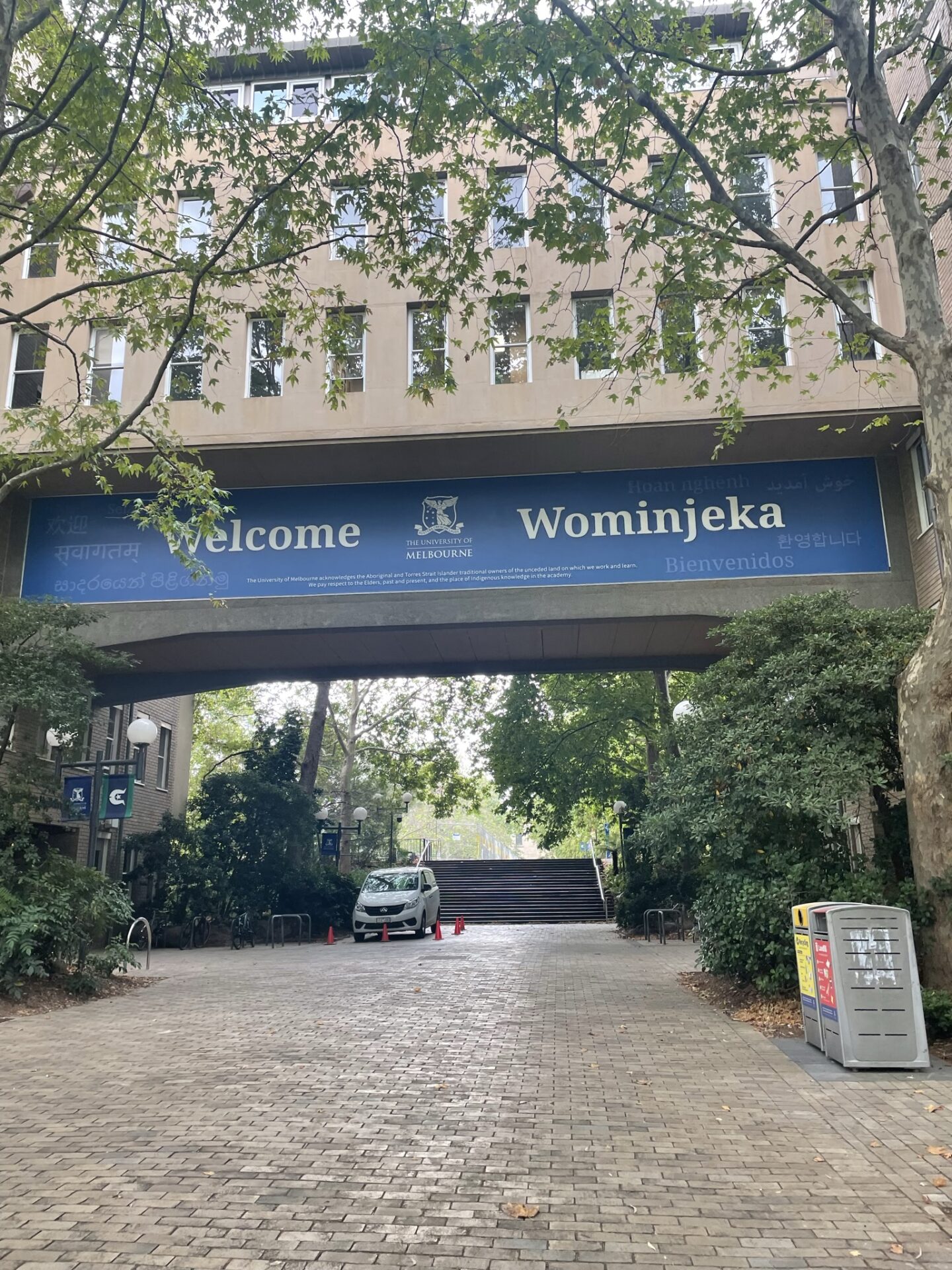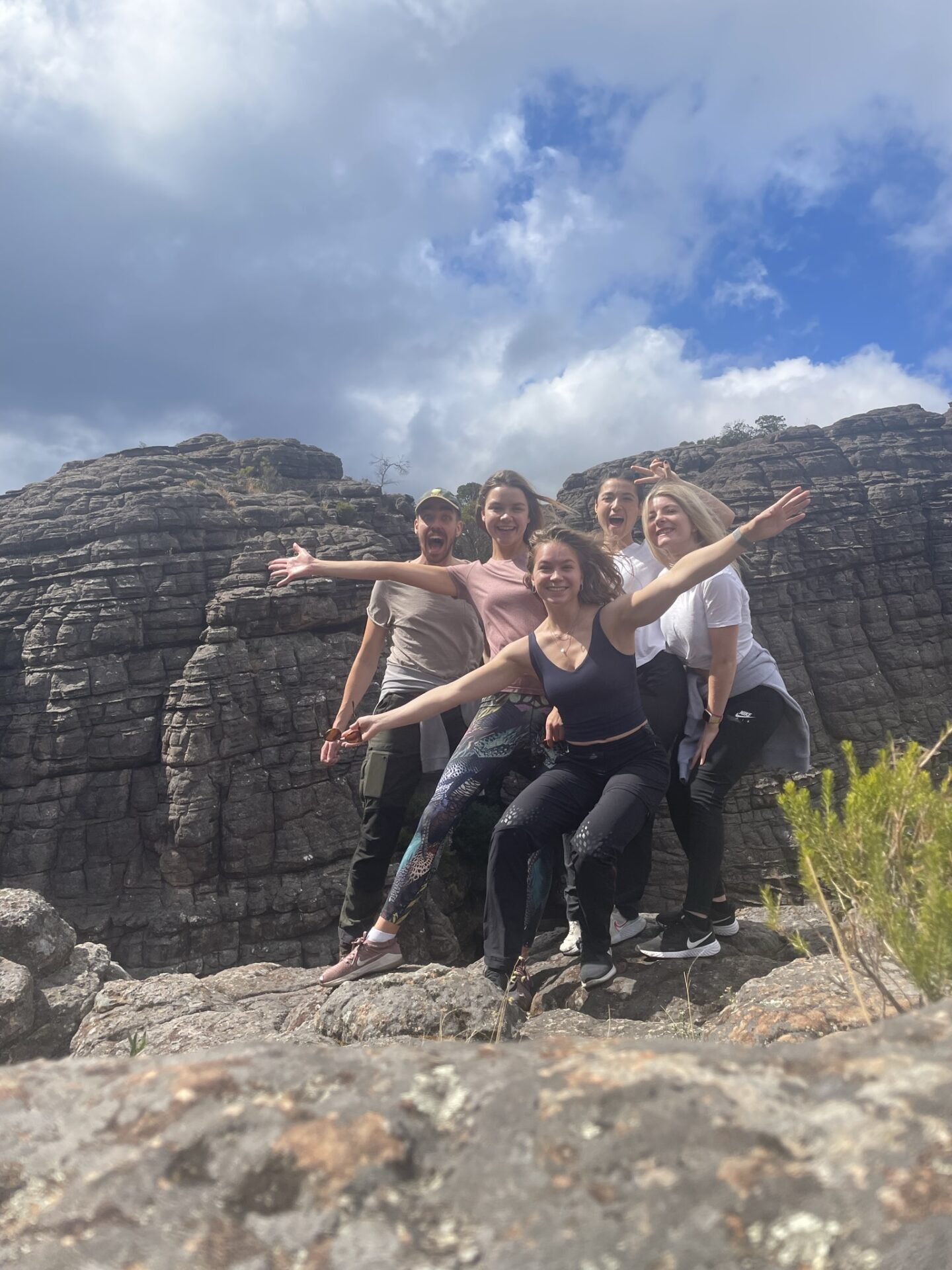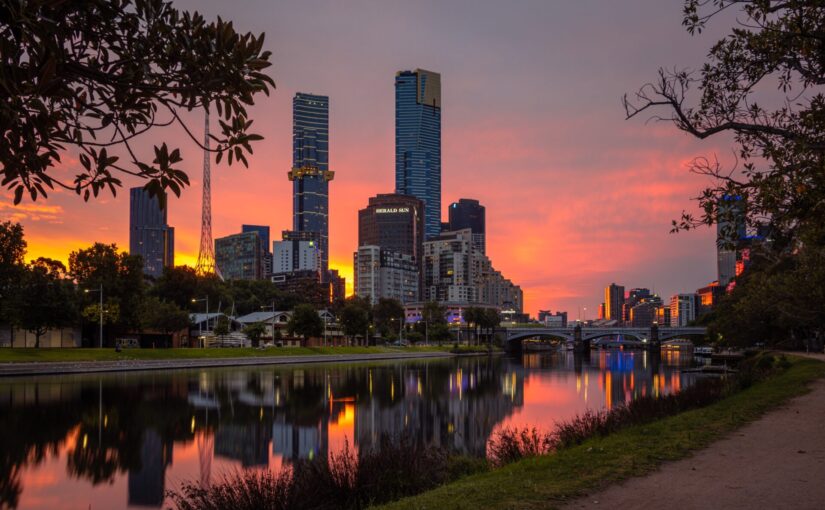Field of study in Wageningen: Nutrition and Health
Study period exchange: 02/2022 – 07/2022
Country (exchange): Australia
City (exchange): Melbourne
University (exchange): University of Melbourne
Faculty (exchange): Pathology, Pharmacology, Metabolism
2. Motivation for exchange
Why did you choose to go on study exchange?
I wanted to experience studying on another university, but utmost I wanted to challenge myself to live in another country and have the freedom meet new people and discover the world.
What is the reason you chose for this country/university?
I choose to go to Australia because I wanted to go far away from here. Besides, the fact that natives speak English was a pro for me. This makes it easier to blend in, be able to read everything outside and have easy conversations with everybody without them having to adapt to me. I also knew that the culture of Australia is very relaxed and that people are very welcoming.
3. Accessibility to reach destination
Do you have any tips to reach your exchange destination?
Plain is the only way to go 😉 From the airport you can take the Skybus to your apartment or taxi/uber. If you live in one of the student accommodations of the university, they have a service that picks you up for free.

4. University and studying
Could you provide some general information about the followed courses?

How is the study formalized?
My courses existed mainly out of lectures. Less than once a week we had tutorials. A lot of preparation before the tutorials and sometimes lectures. Teachers really expect and want you to participate actively. Workload is quite okay, sometimes a bit more compared to WUR but that is mostly because the level of academics is higher in Melbourne. Although, my friends that studied in economic direction did not experience this and found it easy to engage with the study materials. Examination was a combination of writing assignments, mid terms (mostly multiple choice) and end exam (open questions, small time window).

What is the culture of the university?
The lecturers are super approachable. After every lecture you are able to ask questions and they always want to make time if you need some extra help. Local students are very friendly and easy to make contact with. They were also interested in me, which made it nice to go to the lectures and have some people to discuss the study content with. Difference with WUR: teachers expect you to engage in the study, but they also give that back. They will always make time to discuss things 1 on 1 and to help you understand the content.
What does the university offer the student additionally?
The university offers a range of cafes and restaurants for a good lunch and coffee. Besides, there is a big sports field and almost all sports are available.

5. Housing-travelling-living
What are the possibilities for housing?
All options are available regarding housing. The university offers a range of room options: colleges, apartments and so on, for everyone something they like. Although prices are high (I stayed in Little Hall in a 4-shared apartment for $1600/€1100 a month). If you search for cheaper options, private rentals are a better option but I liked the ease of this accommodation and the fact that they offer more than only accommodation (social events, free food sometimes, free activities). The location is also perfect, close to the city and uni.
What is the culture of the country like?
No big differences, other than that people are more welcoming and will invite you. Try some Aussie cuisine: meat pies, kangaroo meat and chicken parmesan.
Could you give a general price indication of the place of residence compared to living in Wageningen?
Living is definitely more expensive in Melbourne compared to Wageningen. This makes total sense, because Melbourne is a big city. Groceries are also a little more expensive compared to NL, but no big differences (only some products). Sports activities are more expensive compared to WUR. I spend around €2000 a month, but that includes all my travels too.
Could you give some information about public transport infrastructure?
Public transport is mostly by tram and metro, PTV. You can get a 50% discount if you follow undergraduate courses. Current prices are $4,60 per 2 hours. Taxi prices are comparable with NL. I travel to the university by foot or bike. Melbourne is quite safe to travel on bike, because there are bike lanes in the city and the city is accessible (mostly flat). Bikes can be found on market place or Gumtree.

6. Free time
What are must-sees in the area?
Great Ocean Road (by campervan/car) Grampians National Park (by campervan/car) Surfing at Torquay (by train/car) Mornington Peninsula Wilsons Promontory National Park Australia is a big country, so these trips I did in the weekends take some time. Average travel 2-4 hours, but so much worth it. It really is easiest if you rent your own car (via companies or private rent Car Next Door) to access these locations. MUSEX is the exchange committee, which I would definitely encourage you to join since they organise events to meet other exchange students, show you Aussie culture and organise trips.
Do you have general tips and tricks about leisure time?
Fitzroy is a nice area to go out for a night. Restaurants: Farmer’s Daughter, Miznon, El Camino, Night Market on Wednesdays.

7. Challenges & best moment abroad
What was a challenge you have experienced?
No big challenges, just that you have to build a whole new life there. This was quite easy though, I mostly hang out with other exchange students because it is easy to make contact and you have the same interests (travelling, exploring).
What was your best memory abroad?
The weekend travels were amazing. Try to see as much as possible of this beautiful country (Uluru was my best experience, such a magical place).
8. Contact Details
Would you like to ask Jasmijn more questions about her exchange? Send her a mail: jasmijnvereecken@gmail.com

